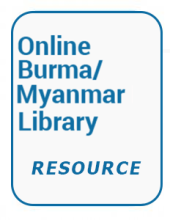Land Library
Welcome to the Land Portal Library. Explore our vast collection of open-access resources (over 74,000) including reports, journal articles, research papers, peer-reviewed publications, legal documents, videos and much more.
/ library resources
Showing items 1 through 9 of 14.... This piece of community initiated action research reveals a number of lessons we can learn. The authors try to reflect the challenges of and opportunities for community based natural resources management in a seemingly forgotten Karen controlled area of southern Myanmar.
... This paper attempts to analyse the key aspects of reforms required to ‘democratise’ Myanmar's timber trade, and the political–economic interests contributing or obstructing reform.
..."This Working Paper examines options for improved sustainability and economic viability for community forest in Myanmar (See also Wode et al 2014). It was prepared under an EU-FAO Regional FLEGT Programme project implemented by Fauna & Flora International that is
... The National Community Forestry Instruction (1995) provides communities the opportunity for 30 year licenses to manage state forests lands for natural forest protection, mixed agro-forestry and timber production systems.
... We here examine several options for independent certification of community forests with a view to legal timber harvest.
... This study was intended to find out the benefits of forests, especially for non-wood forest products (NWFPs), to forestdependent local people and the relation to their socio-economic status. Sampling (169 respondents) was chosen to be an equal distribution of household’s economic status.
A letter from the Prime Minister dated 16 January 2008, and cited in the Constitution Court Ruling No 15/2552, in defense of the Community Forest Bill shows how “community rights” are often seen as contingent upon the responsibility of the communities to take care of the forest.
... Unleashing the potential of community forest (CF) enterprise in Myanmar is crucial for two main reasons. First, it will increase local incomes and government revenues, which will reduce poverty.
ABSTRACT: Burma (Myanmar) is currently emerging from almost half a century of severe military dictatorship. In a country comprising over 50% forested landscapes, the status of forest governance and forest rights are central to the democratisation process.


